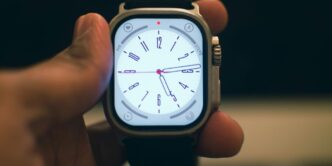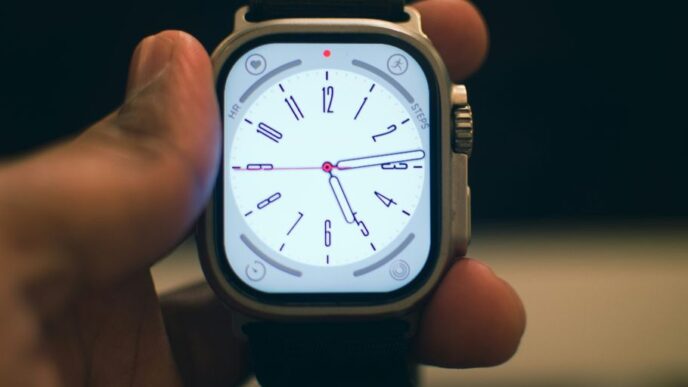Ready to elevate your health and wellness routine? Explore the cutting-edge trends in health tech that can help you achieve optimal well-being. From wearable devices tracking your fitness progress to virtual reality therapy for mental health, there’s an array of innovative technologies available. In this article, we’ll delve into the most exciting new developments in health tech and how they can benefit you. Get ready to embrace the future of healthcare.
Introduction to Health Technology
Health technology has gained significant traction in recent years due to its myriad benefits, including improved patient care, increased efficiency, and lower costs. It encompasses electronic health records (EHRs), telehealth, and mobile apps.
EHRs ensure easy accessibility of patient information for providers, enhancing care quality. Telehealth provides patients with convenient access to care, overcoming geographical barriers. Mobile apps empower patients to monitor their health data and stay connected with their healthcare providers.
Health technology is a constantly evolving field, with new trends emerging regularly. Here are some of the latest trends you need to know:
- Artificial Intelligence (AI) is increasingly utilized in healthcare for tasks like diagnosis, treatment planning, and disease management.
- Virtual Reality (VR) finds applications in pain management and rehabilitation, providing comfort and distraction for patients.
- 3D Printing is employed for prosthetics, implants, and tissue engineering, enabling customized solutions for patients.
- Wearable Devices are gaining popularity in healthcare, tracking various health parameters and empowering users to monitor their well-being.
Wearable Devices Enhancing Fitness
Wearable devices have gained significant popularity, particularly in the realm of health and fitness. Numerous options are available that can track your activity level, heart rate, and sleep patterns.
The Fitbit, a widely popular wearable device worn on the wrist, tracks steps, distance traveled, calories burned, active minutes, and sleep quality. It features a built-in heart rate monitor.
The Apple Watch offers comprehensive activity tracking, heart rate monitoring, and additional features such as text messaging, phone calls, and Apple Pay.
For those seeking more advanced features, the Garmin Vivoactive 3 is an excellent option. It tracks activity, and heart rate, and includes GPS tracking and a built-in music player.
Explore the diverse range of wearable devices to find the one that suits your needs perfectly and elevate your fitness journey.
Telemedicine & Remote Monitoring Revolutionizing Healthcare
Telemedicine and remote monitoring are transformative health tech trends. Telemedicine enables remote consultations with doctors and healthcare professionals via video conferencing, eliminating the need for physical visits.
Remote monitoring empowers patients to track their health data using wearable devices or apps, which can be shared with their doctors. This data aids informed decision-making for better care.
AI & Machine Learning Advancing Diagnostics
AI and machine learning are increasingly employed in the medical field to enhance diagnostics. AI can process large amounts of data quickly and accurately, while machine learning identifies patterns and trends that may be challenging for humans to discern. This improves the accuracy and speed of diagnosis.
For example, deep learning algorithms have demonstrated superior accuracy and faster detection of pneumonia in chest X-rays compared to human radiologists. AI and machine learning have broader applications in cancer detection, heart disease, and mental health diagnostics.
Mobile Health Apps Empowering Patients
Mobile health apps have transformed healthcare delivery. They provide tools for tracking fitness goals, managing chronic conditions, and accessing health data. With the rise of wearable devices, accessing and monitoring health data has become even more convenient.
Mobile health apps benefit both patients and doctors. Patients can track their health data and share it with their doctors for better-informed decisions and early detection of potential issues. However, it’s crucial to research and consult your doctor before choosing and using any mobile health app.
Advantages of Emerging Health Tech Trends
The landscape of health tech is continuously evolving, presenting a challenge to stay abreast of the latest developments. However, it is crucial to keep up with these trends to harness their potential benefits. Here are some noteworthy health tech trends that offer numerous advantages:
- Telehealth Revolution
Telehealth is a leading health tech trend with transformative benefits. It allows patients to remotely consult with healthcare providers through live video conferencing. This is particularly advantageous for individuals residing in rural areas or facing logistical difficulties in reaching medical facilities. Telehealth enhances accessibility, saves time, reduces travel costs, and improves patient convenience.
- Wearable Technology Advancements
Wearable technology has gained immense popularity in recent years. Various wearable devices are available that track vital health data, including heart rate, steps taken, and calories burned. This data can be leveraged to optimize overall fitness and health management. Wearable devices empower individuals to monitor their well-being in real-time, promote active lifestyles, and provide valuable insights for making informed health decisions.
- AI-Powered Assistants
AI assistants are increasingly prevalent in healthcare settings. These assistants can aid in tasks such as appointment scheduling, prescription ordering, and delivering medical advice. Furthermore, they contribute to enhancing patient care by offering personalized recommendations based on individual needs and preferences. AI-powered assistants streamline administrative processes, improve efficiency, and augment the overall quality of healthcare services.
Challenges in Implementing New Health Technologies
As health technology advances, the implementation of new systems and devices poses significant challenges within healthcare environments. While the potential benefits are substantial, there are obstacles to overcome when integrating these technologies.
One major hurdle is the cost of adopting new health technologies. State-of-the-art medical devices and treatments can be prohibitively expensive, making it challenging for hospitals and clinics to justify the expenditure, particularly when budgets are already constrained. Additionally, finding adequately trained personnel to operate new equipment can be difficult, as many emerging technologies require specialized skills and knowledge that may be in short supply.
Another obstacle is resistance from healthcare professionals who are accustomed to traditional methods and may be reluctant to embrace change. Gaining buy-in from all members of the healthcare team is crucial for the successful integration of new technologies into clinical practice.
Conclusion
In conclusion, being familiar with the latest health tech trends can significantly impact fitness and healthcare outcomes. From AI-enabled wearables to virtual reality, there is an array of impressive technologies available to enhance health and well-being. It is worthwhile to research and invest in these innovative products that align with your goals. With the ongoing progress in this field, there is a sense of excitement and anticipation for further advancements in the future.













